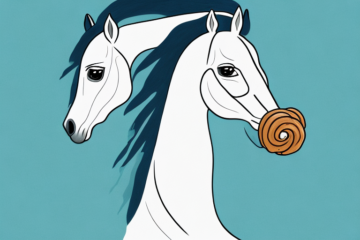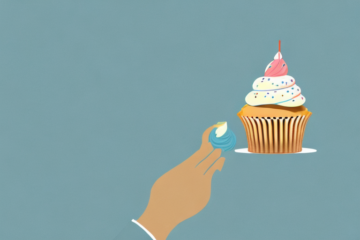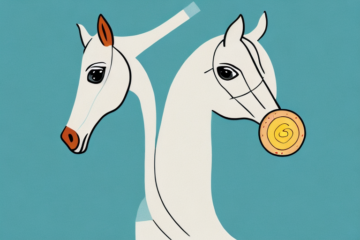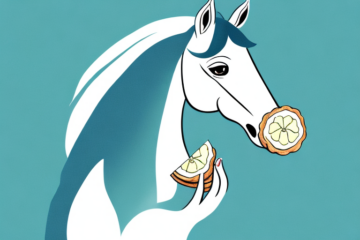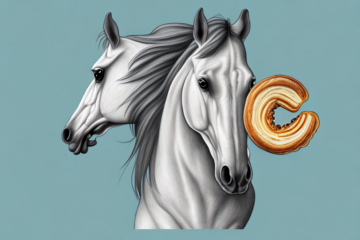As horse owners, we all want to ensure that our equine companions are receiving a well-balanced diet that includes all the necessary nutrients to keep them healthy and happy. When it comes to treats, many horse owners reach for apples or carrots, but what about bananas? Can horses eat bananas? In this article, we will explore the nutritional value of bananas for horses, the potential benefits and risks of feeding bananas to horses, and provide tips for introducing bananas to your horse’s diet.
The Nutritional Value of Bananas for Horses
Bananas are a rich source of essential nutrients for both humans and animals. They are packed with vitamins B6 and C, as well as potassium, magnesium, and manganese. Bananas also contain fiber, which is beneficial for maintaining a healthy digestive system in horses.
In addition to their nutritional benefits, bananas can also serve as a healthy and tasty treat for horses. Many horses enjoy the sweet taste of bananas and they can be used as a reward during training sessions. However, it is important to feed bananas in moderation as they are high in sugar and too much can lead to weight gain and other health issues.
Potential Benefits of Feeding Bananas to Horses
Feeding bananas to horses can have several potential benefits. For one, the potassium found in bananas can help regulate blood pressure and maintain proper fluid balance in the body. Additionally, the fiber found in bananas can improve overall digestive health and alleviate issues such as constipation or diarrhea. Bananas may also provide a natural source of energy for horses due to their high sugar content.
Another potential benefit of feeding bananas to horses is that they contain vitamin C, which can help boost the immune system and protect against illness. Additionally, bananas are a good source of antioxidants, which can help reduce inflammation and support overall health.
It is important to note, however, that bananas should be fed in moderation as they are high in sugar and can lead to weight gain or other health issues if overfed. It is recommended to only feed bananas as an occasional treat and to always consult with a veterinarian before making any significant changes to a horse’s diet.
How Much Banana Should You Feed Your Horse?
When it comes to feeding treats to horses, it’s important to exercise moderation. While bananas can provide many nutritional benefits, feeding too many can lead to an upset stomach or diarrhea. It’s recommended to feed no more than one small section of banana per day, or about a quarter of a banana.
Additionally, it’s important to note that not all horses may enjoy or tolerate bananas. Some horses may have allergies or sensitivities to certain fruits, including bananas. It’s always best to introduce new treats slowly and in small amounts to monitor any potential adverse reactions.
Risks and Side Effects of Feeding Bananas to Horses
While bananas can be a healthy treat for horses in moderation, there are some risks and side effects to be aware of. Due to their high sugar content, feeding too many bananas can lead to weight gain and other health issues such as insulin resistance or laminitis. Additionally, the peel of the banana can be difficult for horses to digest and may cause choking or obstruction in some cases.
It is important to note that not all horses may enjoy the taste of bananas, and some may even have an allergic reaction to them. Signs of an allergic reaction can include hives, difficulty breathing, and swelling of the face or mouth. If you notice any of these symptoms after feeding your horse bananas, it is important to stop immediately and contact your veterinarian.
While bananas can provide some nutritional benefits, such as potassium and vitamin C, it is important to remember that they should not be a substitute for a balanced diet. Horses require a diet that is primarily composed of hay or grass, with additional supplements as needed. If you are unsure about how many bananas to feed your horse or have any concerns about their diet, it is always best to consult with a veterinarian or equine nutritionist.
Alternatives to Bananas for Treating Your Horse
If you’re looking for alternative treats to feed your horse, there are plenty of options available. Carrots, apples, and hay cubes are all great choices that provide essential nutrients while still being healthy in moderation. Avoid feeding your horse sugary treats or foods high in starch, such as grain or bread.
Another great option for treating your horse is peppermint. Not only does it have a refreshing taste, but it also has digestive benefits for your horse. You can also try feeding your horse small amounts of unsweetened coconut flakes or pieces of watermelon as a special treat.
It’s important to remember that treats should only make up a small portion of your horse’s diet. The majority of their diet should come from hay and/or pasture grass, along with any necessary supplements. Always consult with your veterinarian before making any significant changes to your horse’s diet.
Tips for Introducing Bananas to Your Horse’s Diet
Before feeding your horse bananas, it’s important to introduce them slowly and in small amounts. Start with a small section or slice of banana and monitor your horse for any adverse reactions. Additionally, some horses may not like the taste or texture of bananas, so it’s important to gauge your horse’s preferences before incorporating them into their diet.
It’s also important to note that bananas should not be the main source of nutrition for your horse. They should be given as a treat or supplement to their regular diet. Bananas are high in sugar and can cause digestive issues if given in large quantities. As with any new food, it’s always best to consult with your veterinarian before introducing bananas to your horse’s diet.
How to Prepare Bananas for Your Horse
When feeding bananas to horses, it’s important to remove the peel and chop the fruit into small, bite-sized pieces. This will help prevent any choking or digestive issues that may arise from feeding whole bananas. Additionally, avoid feeding your horse bananas that are overly ripe as they may contain more sugar and be harder for your horse to digest.
It’s also important to note that bananas should only be given to horses as an occasional treat and not as a regular part of their diet. While bananas do contain some beneficial nutrients, they are also high in sugar and can contribute to weight gain and other health issues if given in excess.
Finally, when introducing bananas to your horse’s diet, start with small amounts and monitor their reaction. Some horses may have allergies or sensitivities to certain fruits, so it’s important to watch for any signs of discomfort or digestive issues after feeding bananas.
Can Feeding Bananas Help with Digestive Issues in Horses?
Feeding bananas to horses can have a positive effect on their digestive system. The high fiber content found in bananas can help regulate bowel movements and improve overall gut health. However, it’s important to note that if your horse is experiencing severe digestive issues, it’s best to consult with a veterinarian before making any changes to their diet.
In addition to their digestive benefits, bananas also contain potassium, which is an important mineral for horses. Potassium helps regulate muscle and nerve function, and can also aid in preventing muscle cramps and spasms. However, it’s important to not overfeed bananas to your horse, as too much potassium can be harmful. A few slices as a treat or supplement to their regular diet is sufficient.
The Impact of Feeding Bananas on Your Horse’s Behavior and Energy Levels
Feeding bananas to horses can result in an increase in their energy levels due to the natural sugars found in the fruit. However, it’s important to monitor your horse’s behavior after feeding them bananas as some horses may become overly excitable or hyperactive. Additionally, if you notice any changes in your horse’s behavior or energy levels, it’s important to adjust their diet accordingly.
In conclusion, bananas can be a healthy addition to your horse’s diet in moderation. They are a rich source of essential nutrients and can provide potential benefits such as aiding in digestive health and providing a natural source of energy. However, it’s important to be mindful of the risks and side effects associated with feeding horses bananas and to exercise moderation when incorporating them into their diet.
It’s also important to note that bananas should not be the sole source of nutrition for your horse. While they can provide some benefits, they should be given in conjunction with a balanced diet that includes hay, grains, and other essential nutrients. Additionally, it’s important to consult with a veterinarian or equine nutritionist before making any significant changes to your horse’s diet to ensure that they are receiving the proper nutrition for their individual needs.





